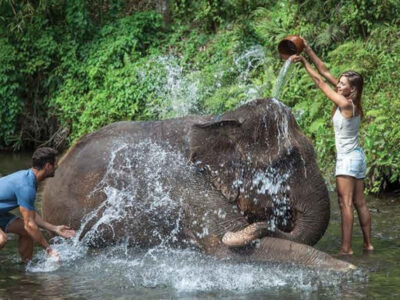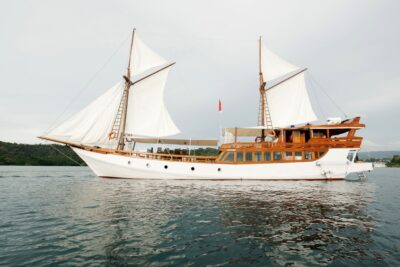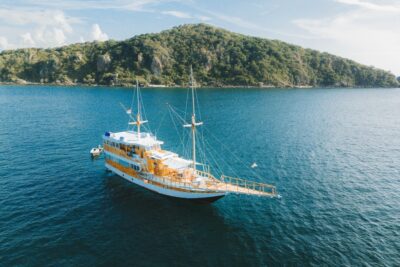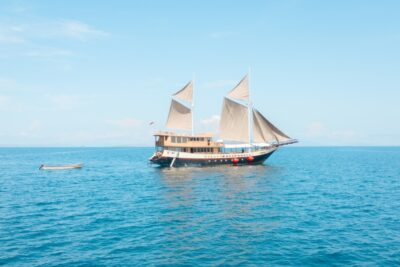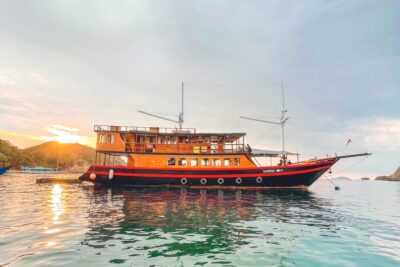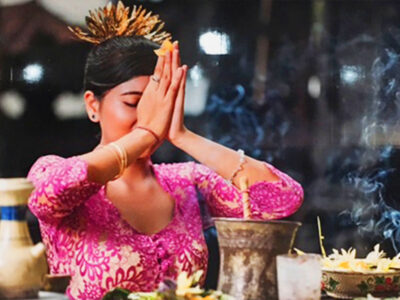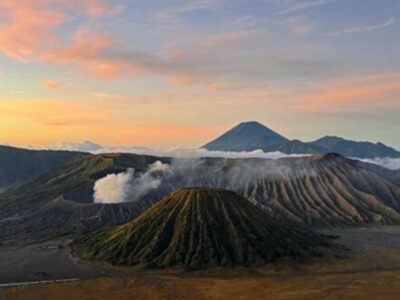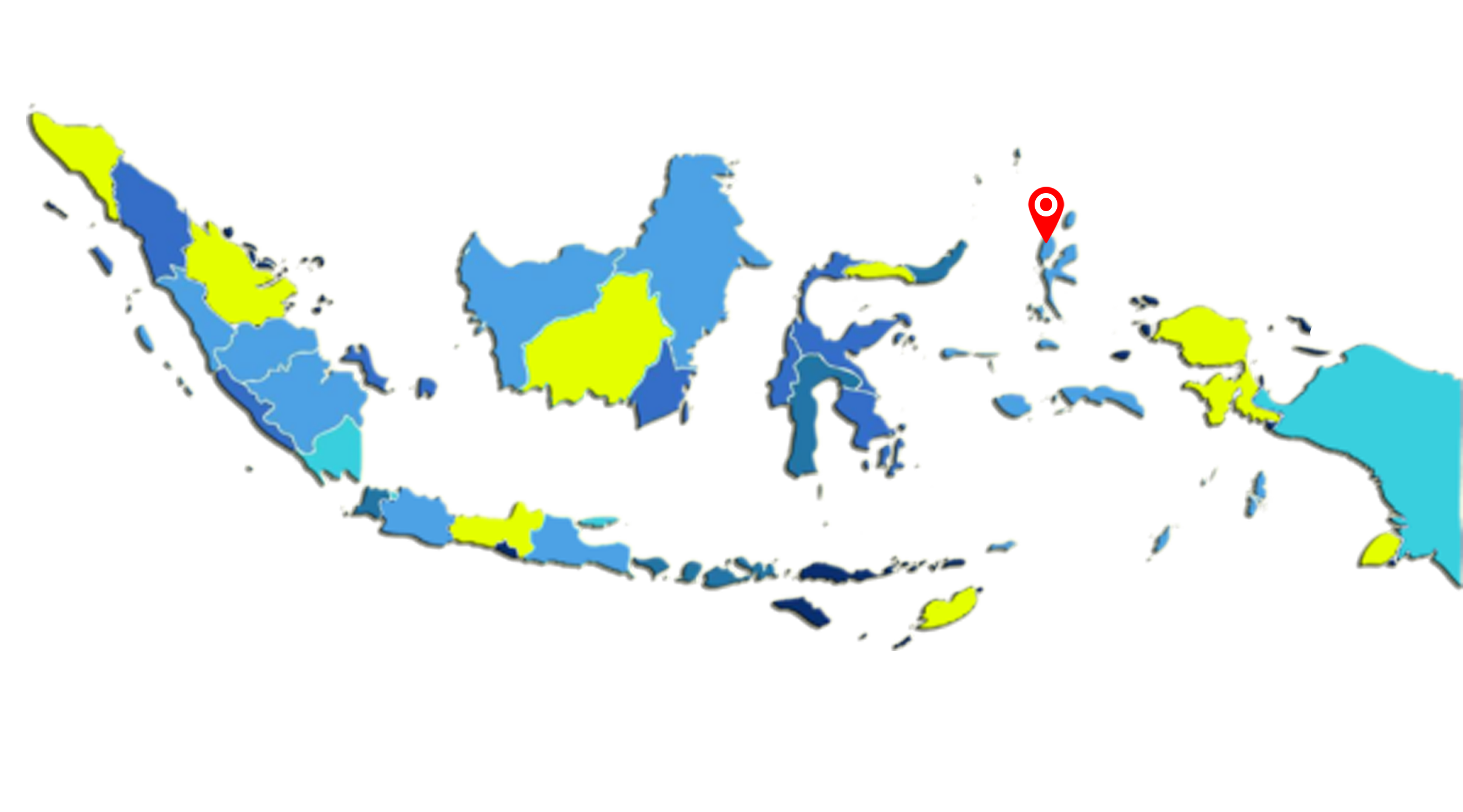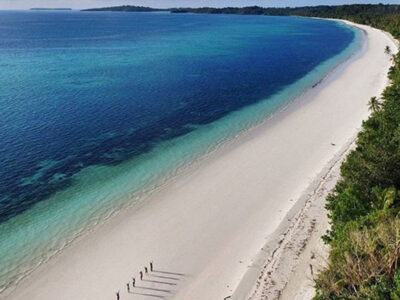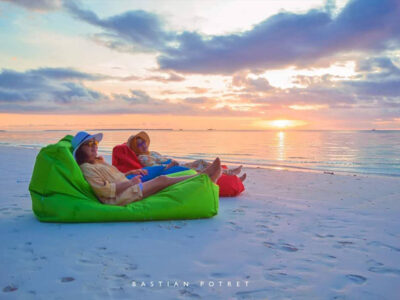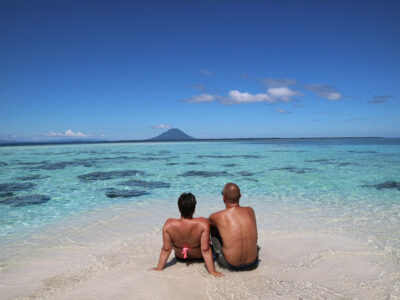Maluku
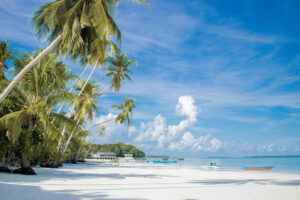
Maluku, also known as the Moluccas, is a province of Indonesia located in the eastern part of the country. The Maluku Islands consist of over 1,000 islands, of which only a few dozen are inhabited. Maluku is known for its rich history and cultural heritage, as well as its stunning natural beauty. The islands were once the center of the global spice trade, particularly renowned for cloves and nutmeg. The Maluku Islands have a diverse population, with various ethnic groups living on the islands, each with their own distinct culture and language.
The economy of Maluku is largely based on agriculture, fisheries, and tourism. The islands are also known for their traditional crafts, including intricate wood carvings and handwoven textiles. Maluku is also home to a variety of unique flora and fauna, including endemic bird species and rare marine life. The region's national parks and marine reserves help protect this biodiversity and provide opportunities for eco-tourism and sustainable development. Despite their remote location, the Maluku Islands have played a significant role in global history, particularly as the historic center of the spice trade. The islands were once prized for their cloves, nutmeg, and mace, which were highly sought-after commodities in Europe and Asia.
Today, the Maluku Islands continue to be known for their cultural diversity, natural beauty, and rich history, attracting visitors from around the world who come to explore their pristine beaches, vibrant coral reefs, and unique cultural heritage. Whether you're interested in diving among colorful marine life, hiking through tropical rainforests, or immersing yourself in local traditions, the Maluku Islands offer a truly unforgettable experience.
Overall, Maluku offers visitors a rich tapestry of culture, history, and natural beauty to explore and enjoy. Whether you're interested in learning about its fascinating history, experiencing its vibrant culture, or simply relaxing on its beautiful beaches, Maluku has something to offer everyone.
| Languages spoken | Bahasa Indonesia |
|---|---|
| Currency used | Rupiah |
| Area (km2) | 74,505 |
Culture and history info
The Maluku Islands, also known as the Moluccas, are an archipelago located in eastern Indonesia. Rich in culture and history, the Maluku Islands have played a significant role in shaping the maritime trade routes of Southeast Asia and have been influenced by various civilizations throughout the centuries.
Culture:
Diverse Ethnic Groups: The Maluku Islands are home to a diverse array of ethnic groups, each with its own distinct culture, language, and traditions. Some of the prominent ethnic groups include the Ambonese, Ternateans, and the indigenous peoples of the Banda Islands.
Traditional Arts and Crafts: The Maluku Islands are known for their vibrant traditional arts and crafts, including intricately woven textiles, wood carvings, and traditional musical instruments such as the tifa drum. These artistic expressions often reflect the cultural heritage and beliefs of the local communities.
Cuisine: Maluku cuisine is characterized by its use of fresh seafood, aromatic spices, and tropical fruits. Dishes often feature ingredients like cloves, nutmeg, and sago, which are abundant in the region. Some popular Maluku dishes include papeda (a sago porridge), ikan bakar (grilled fish), and papeda (a sago porridge).
Religion: The Maluku Islands have a diverse religious landscape, with Islam, Christianity, and traditional indigenous beliefs being practiced by different communities. The islands have historically been known as the "Spice Islands" and were a center of the global spice trade, attracting traders and settlers from various parts of the world.
History:
Spice Trade: The Maluku Islands were once the world's primary source of spices, particularly cloves and nutmeg, which were highly prized commodities in Europe and Asia. The lucrative spice trade attracted traders from Portugal, Spain, the Netherlands, and other European powers, leading to colonization and conflicts over control of the spice trade routes.
Colonial Influence: The Maluku Islands were colonized by the Portuguese, Dutch, and later the British, who sought to monopolize the spice trade. The Dutch East India Company (VOC) established a stronghold in the region, leading to the Dutch colonization of the islands and the exploitation of local resources.
Banda Islands: The Banda Islands, located within the Maluku archipelago, were once the world's only source of nutmeg. The Dutch waged wars against the indigenous Bandanese people to gain control of the lucrative nutmeg trade, resulting in the virtual extermination of the local population and the establishment of Dutch colonial rule.
Cultural Exchange: Despite the tumultuous history of colonization and conflict, the Maluku Islands have also been a site of cultural exchange and interaction between different civilizations. This cultural diversity is reflected in the architecture, language, cuisine, and traditions of the Maluku people.
Today, the Maluku Islands continue to preserve their rich cultural heritage while embracing modernity. The islands' stunning natural beauty, diverse marine life, and vibrant culture make them a fascinating destination for travelers interested in exploring Indonesia's lesser-known gems.
Unfortunately no accommodations were found.
Unfortunately no cruises were found.

Are you looking for a seamless and stress-free travel experience? Worry no more as our rental car services apart from having experienced drivers, are also tailored or designed to meet the needs of discerning travelers and travel agents.




